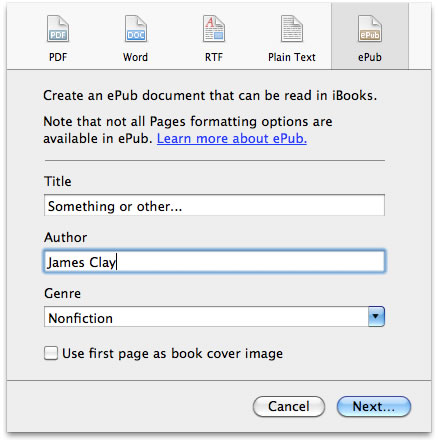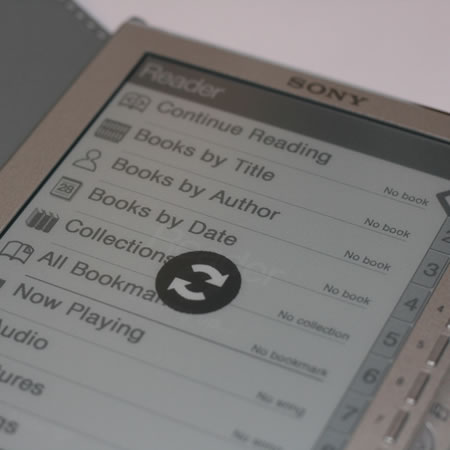Though we know books are wonderful things they do have a few disadvantages.
They are heavy! Okay carrying a single book is probably okay for most people, but think about carrying all the books in a bookshelf? Yes not a practical solution to carry them all in one go!
You have to buy books, either from a book store or Amazon. Regardless of the route you take it will still take time to either find and buy the book in a bricks and mortar store, or wait for Amazon to deliver it. I have bought books from Amazon.com and it takes weeks for them to be delivered from the USA unless I am willing to pay an arm and a leg for speedy delivery.
Of course if you don’t buy the book, you can always borrow from your local library. Well you could borrow from your library under two assumptions. First that they have a copy, second that no one else has borrowed it. Yes you can request a copy or reserve a copy, but once more that takes time. In academic libraries the problems of scarce real books can impact on the learning process. I recall from my undergraduate days when as soon as a lecturer mentioned a book in a lecture as “essential reading” the entire cohort of students would literally run to the library to get out the single copy available… The library did sometimes under the direction of the academics add the book to a “special collection” that allowed the book to be borrowed for one hour! No more, just one hour! The focus moved away from learning and onto book borrowing and logistics!
One advantage given to paper books is the ability to highlight words or phrases, annotate sections of interest or fold over the corner to bookmark a page. This is fine if this is your book, but can change how someone views the content of the book if they use a book that already has annotations and bookmarks. Their view will be skewed by the previous reader. Also if you annotate or bend pages of a library book then the librarians rightly get a little upset.
If you talk to lost property offices at railway stations and airports you will realise that people lose books all the time. Once lost, the only way to retrieve that book is to buy a new copy.
Finally though for many, books are an accessible format, for some the small text and black on white printing can be inaccessible.
The e-book reader is a technological solution to some of the issues we face with real paper books. There are many models out there from the new Sony Reader with touch interface, the Nook and the well received Amazon Kindle. These e-ink devices allow you to read books anywhere and at anytime, well under the assumption it isn’t dark!
You can put onto these devices an entire library of books. The Kindle is only 241 grams (8½ oz.) so weighs less than a single paperback book, but can be loaded with three and a half thousand books.
The Kindle (and now some other e-book readers) allow you to buy and download books over wifi or 3G without needing a computer and without needing to wait for delivery. A single click and the book is there in almost an instant ready to read. You can also download sample chapters, try before you buy. Well you can do that in a bookshop, but I find the shop assistants always look at me weirdly. In my local book shop, which has a coffee shop inside, has put up notices asking customers not to take books from the shelves into the café area and read them whilst drinking coffee.
Some educational institutions are now providing learners with a Kindle and filling it with the requisite text books, literally providing them with a library on the move. Libraries that use e-book readers, no longer need to guess how many physical copies of a core text will be needed they can provide copies on demand as and when needed. Many e-book readers like the Kindle, allow you to highlight, annotate and bookmark an e-book. However these can be easily removed if you are using a borrowed e-book reader from the library for example.
If you lose your Kindle, you’ve not lost your library. You can replace your Kindle and then re-download your library to the device.
In terms of accessibility, the ability to change text size and contrast on e-book readers ensures that they are more accessible than paper versions. The Kindle also has a text to speech capability, though it has to be said, some publishers do not allow their books to be read in this way, they would I guess prefer you buy the audiobook version.
Having said all that e-Book readers are not there to replace books, they enhance and enrich the reading experience. Just because I have a Kindle doesn’t mean that I am never going to read another paper book again! Far from it, I suspect that reading sample chapters on the Kindle will probably result in purchasing the paper version… likewise though I will admit I can see myself clicking the “buy” link now and again.
e-Books also have a few disadvantages in that once I have purchased a copy of an e-book, it is nigh on impossible to lend that copy to a friend… it is impossible to donate the e-book to the local Oxfam shop… it is impossible to impress your friends as you can with a books on the coffee table or the bookshelf when they come to visit…
e-Book readers, like the Kindle are wonderful things, but still, the iPad is the future of reading…
A version of this article originally appeared on the FOTE10 website.






